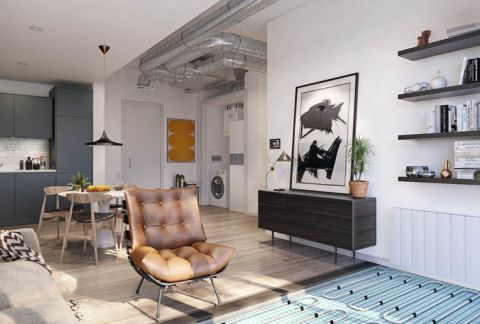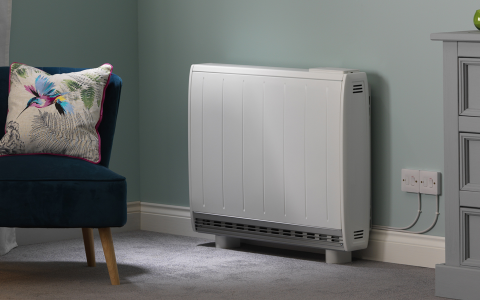
How can the Zeroth Energy System overcome the challenges of overheating in large residential developments?

Overheating is generally associated with high-temperature systems where the water circuits operate at 60-80oC that have been installed in modern, high-rise buildings with thermally efficient building envelopes. Lowering the temperature to 25oC reduces the overheating risk and increases the overall energy efficiency of an HVAC system, reducing or removing this issue.
What are the reasons for overheating and how do we tackle them?
To reduce heat loss within residential developments there has been an emphasis on insulating our buildings as outlined in Part L However, in absence of a review of the application of traditional high temperature systems, we are left with compliant buildings that are prone to overheating.
There are two sources of overheating in large scale residential developments
- Internal - caused by heat loss from services and technologies within the building envelope, typically the predominant contributor being transmission losses from communal pipework of high temperature heating distribution systems.
- External - caused by high external temperatures, ‘heat island’ effects, and solar radiation that isn’t absorbed by the building envelope but penetrates the building and heats up the internal spaces.
Passive cooling measures can be deployed to tackle overheating, but the solutions available here might be limited. For example, in locations close to a busy road or high up in the building, opening windows may not be an option. Mechanical ventilation and comfort cooling are viable options but need to be considered in the context of overall energy efficiency and compliance. You can read more abuot the requirements for HVAC systems compliance for a collective application and how the Zeroth Energy System can help achieve this are discussed here.
Why is it important to reduce overheating risks and how can ambient networks help?
High indoor temperatures affect occupant comfort. This impact will vary from person to person, but overheating can affect the health, wellbeing, and productivity of occupants. The Climate Change Committee’s (CCC) report to Parliament states that overheating in buildings, if not addressed, could have serious health implications. It is expected to cause some 4,500 premature deaths per year by 2050.
As discussed, by lowering the temperature of the central distribution loop to the ambient range, the Zeroth Energy System can reduces heat distribution losses from the pipework. A reduction of up to 90%, in comparison to high temperature centralised systems, can be achieved. If occupants still require comfort cooling, this can be delivered efficiently using the heat pump reverse cycle within the apartment, with the added benefit that the waste energy from this process balances the loop and provides heating for space and hot water without additional load on the central plant.
To find out more on how the Zeroth Energy System can help combat overheating in your residential project, please contact one of our HVAC specialists.











